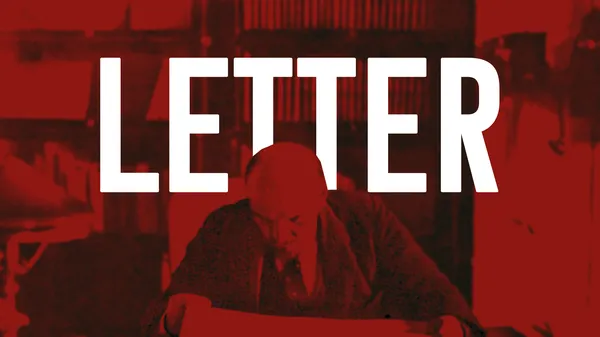My thanks to Rudy and Gil Schaeffer for taking the time to respond to my article, “Why machines don’t create value”. I’ll keep my responses as brief as possible.
Rudy agrees with the proposition that machines don’t create value but proposes two refinements of my formulations. First, in the context of the robot taxi driver thought experiment, Rudy suggests that:
... the taxi company using mechanized drivers is only hiding the human labor-input. The mechanical taxi driver requires maintenance (done by a human), if it gets stuck it has to be rescued (by a human), and if a change to the business model has to be made it has to be thought of by a human and installed by a human.
I agree that all machines are conceived, built and maintained by human labour. But it’s also true that human labor is always combined with non-human factors. Hence stating that the “mechanical taxi driver requires maintenance (done by a human)” isn’t fully accurate and implicitly assumes the conclusion we’re trying to establish. Because maintenance of the robot taxi requires human labour combined with the kind of machinery and tools we find in an automotive workshop. Constant capital, and therefore machinery, is always present in every production process: maintenance is also "done by machines". Rudy’s proposal that mechanisation merely “hides” labour input but never “removes it” is therefore partially true but doesn’t constitute “a more compelling explanation for Marx’s thesis” but restates an unsuccessful response to the thought experiment that I discussed in my article under the heading, “Human labor is the universal input”.
Second, Rudy isn’t fully satisfied with my resolution of the thought experiment where I point out that human taxi drivers adapt to new market conditions, and thereby generate new surplus-value, but the robot taxi drivers do not. Rudy (correctly) points out that robot taxi drivers could be upgraded to respond to new market conditions and that such “adaptation would require human labor”. Here I believe we’re in complete agreement. The thought experiment, for the purposes of illustrating the “causal powers” thesis, assumes some given conditions of production with a given level of automation (e.g. robot taxi drivers that can ferry passengers around but cannot notice new market opportunities in the domain of road transport) and then points out that only human labour revolutionises those conditions. But the thought experiment could equally have assumed an initial higher degree of automation (e.g. robot taxi drivers that are able to notice new market opportunities). We alienate our powers in increasingly sophisticated machines and hence the degree of automation embodied in constant capital tends to increase. But as I state in the “causal powers” thesis: “Humans have universal causal powers. Machines have particular causal powers.” So, once again, in these new conditions of production, only human labour has the power to create new surplus-value by reprogramming or upgrading the more adaptable robot taxi drivers, perhaps replacing them with even more sophisticated versions or simply scrapping them altogether if we invent new, revolutionary modes of transport.
Gil Schaeffer rejects Marx’s theory of value and surplus-value (“Marx’s fatally flawed value theory”) and claims that my presentation of Marx’s incorrect theory is itself incorrect. So my article, it would seem, is doubly flawed. Obviously, I disagree on both counts. Gil appears to misunderstand key aspects of Marx’s theory, and my elaboration of it, throughout his letter. But it would test everyone’s patience to detail every instance. I will therefore merely note Gil’s claim that “the necessary inclusion of part of expected future profits in the cost of the machine makes Marx’s theory of value as embodied labor time untenable”. This claim simply reduces to the (true) observation that prices in general differ from their values (which, in passing, we should note are not properties literally “embodied” in commodities). In this context, we must remember that Marx’s theory aims to link deep, structural changes in the conditions of production to surface changes in the monetary conditions of a capitalist economy, such as rates of profit. Obviously, future expectations affect the prices of all kinds of assets, not just machinery. Hence such prices will deviate from their underlying values. But as Marx points out “in the midst of all the accidental and ever fluctuating exchange relations between the products, the labour time socially necessary for their production forcibly asserts itself like an overriding law of Nature. The law of gravity thus asserts itself when a house falls about our ears.” (Ch. 1, Section 4, Vol. 1). Subjective expectations can float free of the constraints of the conditions of production, buy only for only so long. Marx, in his initial development of this theory of value counterfactually assumes that prices equal values (e.g. see footnote 9 in Ch. 9, Vol. 1) precisely because prices are subject to all kinds of additional determinations. This helps Marx, and us, begin to understand the hidden factors that affect price phenomena, such as changes in profits due to revolutions in productivity that arise from variable, not constant, capital. This is what deep theory building looks like. Pointing out to Marx, or those that build on his work, that the price of a machine in general differs from its value is somewhat like teaching your Grandmother to suck eggs, and nothing like demonstrating that Marx’s theory of value is “untenable”.
Ian Wright
Liked it? Take a second to support Cosmonaut on Patreon! At Cosmonaut Magazine we strive to create a culture of open debate and discussion. Please write to us at submissions@cosmonautmag.com if you have any criticism or commentary you would like to have published in our letters section.
